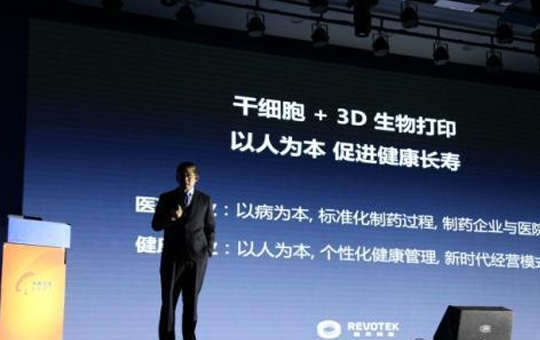The world's first biomedical 3D printed blood vessel was successfully tested in monkeys
"3D bioprinting blood vessels constructed by stem cell bio-ink technology have been successfully implanted into rhesus monkeys to achieve angiogenesis." China's first batch of "Thousand Talents" experts, Sichuan Blu-ray Inno Biotech Co., Ltd. (hereinafter referred to as "Blu-ray Kang Yujian, chief scientist of the company, said that the achievement is the first in the world and is a milestone in the clinical application of stem cell technology.
On the 11th, Blu-ray Inno was released in Chengdu, and the 3D bio-printing technology of the national “863†program jointly undertaken by the National Center for Regenerative Medicine of Sichuan University and the Bio-additive Manufacturing Industry Technology Research Institute of Sichuan Province promoted the research and development of artificial blood vessel endothelialization. A major breakthrough was made in the project – 3D bioprinting vascular animals were successful in vivo.

China's first batch of "Thousand Talents Program" expert Kang Yujian conference live speech
Kang Yujian introduced that the team he led took out about 5 grams of fat from the rhesus monkey body, extracted the adipose mesenchymal stem cells to make the "ink" required for 3D bioprinting, and then printed the blood vessels with special equipment and replaced the Approximately 2 cm of the abdominal aorta in the monkey. One month after surgery, the printed blood vessels have merged with the rhesus monkey's own abdominal aorta.
It is reported that since May 2016, 3D bioprinting vascular animal experiments have been officially started. As of December 1, 2016, Blu-ray Yingnuo has been implanted in 30 rhesus monkeys in vivo, and the survival rate of experimental animals is 100%. .
"The printed material is taken from the adipose-derived mesenchymal stem cells of the experimental animals, which guarantees the safety of the vascular graft in the body." Kang Yujian said that the traditional artificial blood vessels have endothelialization problems, which are prone to blockage and need to be replaced after about 10 years. . New technology solves this problem and prints blood vessels for life. In addition, patients with traditional artificial blood vessels need to use anticoagulants for life, and the printing of blood vessels shortens this time to 5 days after surgery, after which no medical treatment is needed.
Tetanus Shot,Tetanus Vaccine,Hepatitis B Injection,Hep B Vaccine
FOSHAN PHARMA CO., LTD. , https://www.full-pharma.com